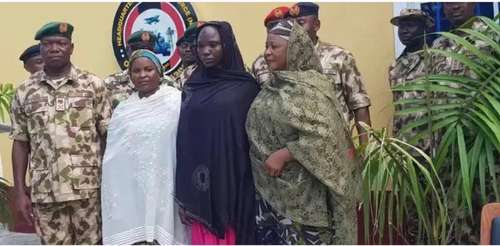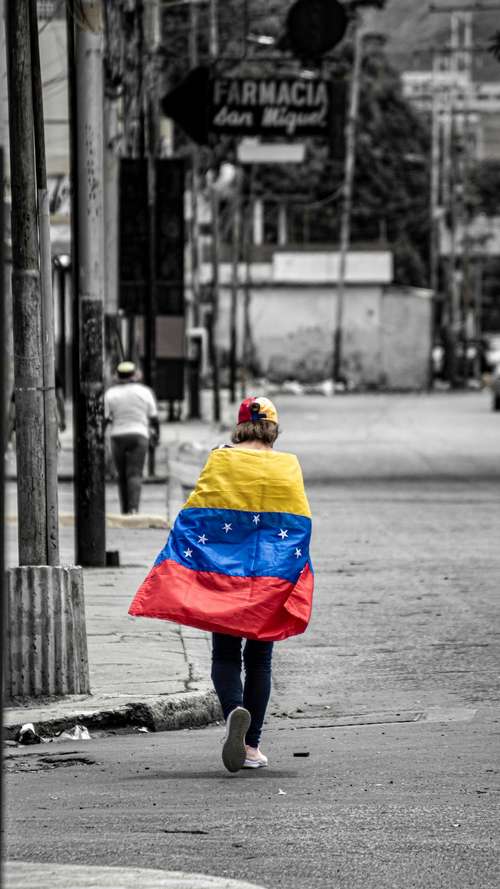Cases of abused victims drawn to their captors are not new. In Nigeria, another classic scenario is brewing. Mary Nkeki, one of the rescued girls in a terrorist school raid, has been begging to return to her captor, who wedded her in captivity.
The abduction of the Chibok schoolgirls in 2014 by Boko Haram terrorists reverberated across the globe, unmasking the alarming security issues in Nigeria's northeastern region. The incident showcased a terrorist group's unrelenting brutality in pursuing an extremist ideology. To combat the problem, a spark of global campaigns ensued, demanding the release of the school girls.
In 2014, the Nigerian Chibok schoolgirls were kidnapped from their school, about 276 of them. The Nigerian government, alongside other concerned bodies, swiftly swung into action for the release of the students. These rescue efforts led to deliberation between the Nigerian government and the terrorists who made obscene demands before releasing some abducted girls in small batches.
One of the rescued girls is Mary Nkeki, after enduring nine years of captivity at the hands of Boko Haram. While these girl students were in terrorist captivity, many of them were abused, raped, and tormented to switch to the Muslim faith. As bizarre as it sounds, some of the abducted girls, like Mary, were wedded to some terrorists.
These marriages created a strong bond between the captors and the captives, who were only thankful to be alive. Experts consider these bonds classic cases of the Stockholm syndrome. Mary's story spotlights this perplexing phenomenon where hostages develop emotional bonds with their captors, often as a mechanism to endure the trauma.
Like the Taliban, members of the Boko Haram terrorists do not seem to believe in Western education, especially for women. This belief alone reinforces their guts to dismantle places that may provide, such as schools and churches.
Mary Nkeki's case encapsulates the labyrinthine emotional complexities that these abducted girls undergo. In 2023, a tweet revealed that Mary Nkeki begged authorities to be allowed to return to her terrorist husband, who is now a repentant Boko Haram member. This affirmation of her desire to reunite with her Boko Haram husband provides insight into the intricate psychological defence mechanisms that unfold during captivity.

Mary's experiences likely encompassed a cocktail of fear, manipulation, and dependency, intertwining to form an intricate emotional connection as captives attempt to navigate the harrowing circumstances of their captivity.
The revelation that Mary's captor played a role in her eventual escape after surrendering to the Nigerian Army adds a layer of complexity to the narrative, spotlighting the multifaceted relationships that take shape within extremist groups.
The interplay of shifting allegiances, power dynamics, and personal connections mould the intricate captor-captive dynamics. Despite the agonizing ordeal, Mary's enduring emotional attachment to her captor underscores the multifaceted psychological responses that materialize as adaptive mechanisms for survival.
The Stockholm Syndrome in Play for the Chibok Schoolgirls
The term "Stockholm syndrome," coined after a 1970s bank robbery in Stockholm, offers a fitting explanation for Mary's emotions. Over time, the lines between captor and protector blur, causing hostages to perceive their captors as their primary security source, thus giving rise to intricate emotional entanglements.
Surprisingly, Mary's case is one of the many. Reports from 2014 to date reveal that some girls rescued from abduction had demanded to be allowed back to their captor spouses. In 2017, Aisha Yerima, one of the freed 'Boko Haram wives', returned to her terrorist husband. Reports say she got jealous after she heard her husband was now with another woman.
Like Mary and Aisha, other girls have been vehement and attempted to escape rehabilitation to be reunited with their dangerous loves.
However, this scary narrative questions the Nigerian government's ability to fully implement these girls' rehabilitation and integrate them back into sane society.
Fatima Akilu, psychologist and Head of the Neem Foundation, an anti-extremist group responsible for rehabilitating the Chibok girls, had affirmed the desire of the girls under her care seeking to return to her captors.
"Rehabilitation and reintegration is a long process.
… coupled with the fact that we have an active, ongoing insurgency," she quipped.
Mary's narrative highlights the formidable challenge of reintegrating former captives into society due to their profound emotional trauma.
Beyond Mary's ordeal, her story mirrors the broader struggle against Boko Haram and the intricate factors that fuel the group's activities. It is another confirmation of the trauma left on many Nigerians by the Boko Haram terrorist group, which proves that their influence eats more profoundly into the system than we care to admit.
Despite the loss of lives and physical damage to properties, many victims like Nkeki may never recover from the psychological effects of the events over the years. In a country like Nigeria barely making headway in its struggles to combat terrorism, one may begin to wonder if there are any hopes for victims of the menacing group to get back their lives again, post-trauma.
Has the government implemented active recovery programs for affected citizens, or will they have to develop coping mechanisms that merely offer superficial healing on their own?
Mary Nkeki's story compels us to address the dilemma we desperately avoid; "Moving On As A Victim Of Terrorist Attack, Post-Trauma ". It is a problem in dire need of intervention, and every person must lend their voice to this cause.




